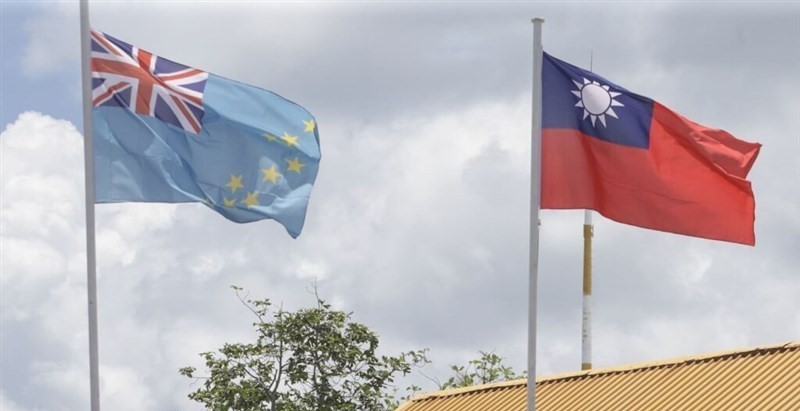Tuvalu has reaffirmed its recognition of Taiwan following an election last month that had triggered speculation the Pacific island country could sever ties and recognise Beijing.
After choosing a prime minister earlier this week, Tuvalu’s new government on Wednesday released a statement of its domestic and international priorities. While reaffirming ties with Taiwan, the coral atoll nation of some 10,000 people also signaled it wants more benefits from the relationship.
“The new government wishes to reaffirm its commitment to the long-term and lasting special relationship between Tuvalu and the Republic of China, Taiwan,” the statement said.
“It intends to reassess options that would strengthen and lift it to a more durable, lasting and mutually beneficial relationship.”
Seve Paeniu, the finance minister in the previous government who reportedly argued for reviewing ties with Taiwan, is not part of Tuvalu’s new nine-man Cabinet.
Tuvalu is one of the dwindling number of nations that have diplomatic relations with Taiwan instead of Beijing. Last month, another Pacific island nation, Nauru, severed ties with Taiwan, reducing its diplomatic allies to 12 countries. Among Pacific island nations, Palau and the Marshall Islands also recogniSe Taiwan.
China’s government has courted Pacific island nations for the past two decades as it seeks to isolate Taiwan diplomatically, gain allies in international institutions and challenge U.S dominance. Beijing regards Taiwan, a democracy and globally important tech manufacturing center, as a renegade province that must be reunited with the mainland.
The new Tuvalu government’s statement of priorities underlined the numerous challenges facing the farflung archipelago nation, particularly on its most populated atoll Funafuti.
It listed 19 challenges that included higher sea levels, lack of protection against king tides that swamp atolls, insufficient medical services, chronic problems of waste disposal on Funafuti – which is only a few square kilometers in area – lack of affordable flights, lack of reliable shipping and a high cost of living.
The statement said Climate change and the impacts of sea level rise remain the single greatest and existential threat to the livelihood, security and wellbeing of the people of Tuvalu.
“They continue to be paramount and top priorities of the new government.
“Addressing climate change and mitigating the effects of rising sea levels are of most importance for the new government.
“The new government is committed to providing every available form of support and aid to bolster Tuvalu’s ability to withstand and adapt to the severe consequences of these phenomena.
“The need for immediate and interim measures to minimise the destructive impacts of king tides and tidal surges on coastal areas and adjacent land and public and private properties as recently experienced by the whole country,” the statement said.
The statement also said that the new government broadly supports a contentious security pact with Australia that was signed last year, but would seek to amend parts of it.
The treaty between Tuvalu and Australia, called the Falepili Union, requires Tuvalu to have Australia’s agreement for “any partnership, arrangement or engagement with any other state or entity on security and defence-related matters.” Its expansive scope and lack of consultation was criticised during the election campaign.
The Tuvalu government statement said it recognises the absence of transparency and consultations in informing Tuvaluans about the treaty, which comes with a long-term commitment to resettle some Tuvaluans in Australia.
“The new government intends to address those process issues and to work with the government of Australia towards a workable arrangement in advancing the objectives of the special union between Tuvalu and Australia, in particular safeguarding the integrity of the sovereignty of Tuvalu,” said the statemement.














